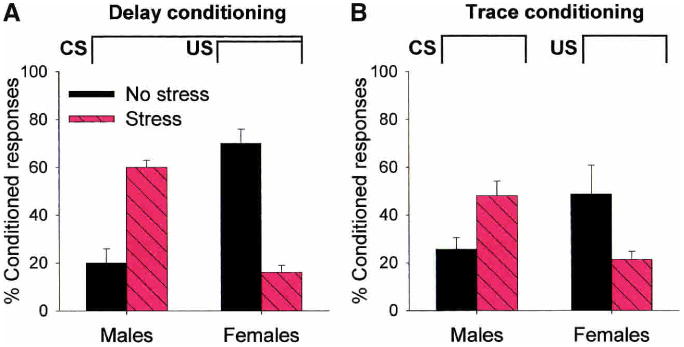Figure 6.

The opposite effects of acute stressful experience on classical eyeblink conditioning occur irrespective of task difficulty or the brain region on which the task depends. (A) Acute stress enhances performance during delay conditioning in males but impairs delay conditioning in females (Wood and Shors 1998). (B) Acute stress also has opposite effects on trace conditioning in males and females, even though the task is more difficult and depends on an intact hippocampus (Beylin et al. 2001; Wood et al. 2001).
